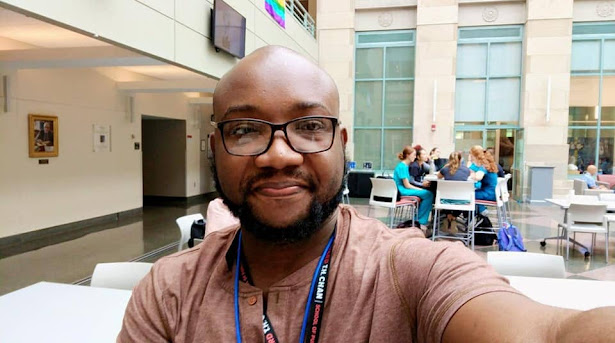GoFundMe started for Haitian healthcare worker accepted to Harvard
 |
It was like a clip out of those Twitter videos about a high school senior opening their admissions letter from an Ivy League school. The letter’s sender, Harvard University, was definitely prestigious. But the recipient, Benito Isaac, definitely was unique.
For one, Isaac is based in Port-au-Prince. He’s far from a high schooler, working as he does as a program manager at Zanmi Lasante, an organization that helps provide medical care to people unable to afford it.
“When the email about my admission to the program popped up on the screen and I saw the word ‘Congratulations,’ I screamed and dropped the phone,” Isaac said. “At that moment, I realized something very big is about to happen.”
Isaac had been accepted into the Masters of Medical Science and Social Medicine program in 2019, but unfortunately had to defer his acceptance. He is hoping to enroll this upcoming September, but financial barriers stand in the way of him attending the two-year program, which would cost a total of $137,294 with all expenses factored in.
Isaac, 34, received a bachelor’s degree in applied quantitative economics with a specialty in statistics from “Centre de Techniques de Planification et d’Economie Appliquée” in 2012. He kicked off his career soon after as a database technician at the “Institut Haïtien de Statistique et d’Informatique” before joining Zanmi Lasante the next year. Once there, Isaac rose through the ranks from a monitoring officer to a research coordinator before acceding to his current position of program manager.
With the master’s in medical science and social medicine, he hopes to continue to further connect healthcare delivery and statistical methods. That work can draw scientific conclusions that can affect such advances as vaccine development.
Ultimately, his goal is to develop research that can help address the complexity of health challenges in Haiti, which includes social, economic and political factors affecting population health.
“Scientific techniques that decide on the efficacy of a new vaccine when you’re doing a clinical trial have a statistical foundation,” said Isaac, who lives in the capital with his wife, Keving Merode Nicolas, and their three-year-old daughter, Karen. “Gender-based discrimination and bad health policies always kill and this is the reason someone like me with a background in statistics can have an admission into this program.”
Isaac said the degree is just as vital as the medical fields for addressing health problems plaguing Haiti. He said that people often think that healthcare is only for clinicians, doctors and nurses, and therefore the links between healthcare and other fields of study are either distant or non-existent for them.
If he is able to attend Harvard, Isaac plans to complete a research project focusing on the applications of data science on global health delivery.
“Higher education is practically impossible for the majority of Haitians unless you come from an affluent background,” said Elizabeth Campa, director at University of Global Health Equity Haiti. “He’s now in this great position that is symbolic to younger generations in Haiti where they could say, ‘Look, I can do this too.’”
Growing up in the small town of Pilate, located about 39 miles west of Cap-Haïtien, Isaac said he admired medical professionals from a young age. He wished to work in that field because he saw the impact those professionals could have when helping people in languishing towns like his own. He was particularly inspired when a resident doctor visited the town’s small clinic and he realized the important role doctors could play in saving lives.
“In rural areas like Pilate, people will always say ‘God first, then the doctor’ to express their esteem for how important the doctor is in society,” Isaac said. “We often refer to Pilate as the outside world, where people lack good housing, education and they have to live day to day.”
As a research assistant at Zanmi Lasante, he worked on a non-communicable disease project looking at cardiovascular disease in Haiti. As program manager at the organization, he oversees a budget of nearly USD $1.8 million per year for one of their largest grants, which addresses maternal and child health, pre-and postnatal care, and water sanitation. Isaac had also participated in a non-degree summer program at Harvard in 2019, where he studied epidemiology, biostatistics, and health management practice.
“I remember when he sent me a WhatsApp message telling me he was accepted and I started crying immediately,” Campa said. “Benito is but one example of what we hope to do in the future where we can ensure that everybody in Haiti who wants to have a higher education will be able to do so.”
Campa has started a GoFundMe to help Isaac attend Harvard later this year. She said she will be able to cover his living and travel expenses totaling $25,000, but needs additional help to raise the rest.
“I started this project in the hopes of sharing his story with the Haitian community and people around the world and we’re really coming down to the wire,” said Campa, who lives in Haiti. “By being in this program and having the opportunity to study data collection methods and global health ethics, he will really be able just to build on what he has now.”
This story was originally published in The Haitian Times.


Comments